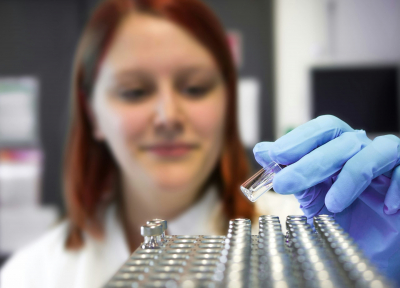Hepatitis B
Learn about Hepatitis B virus and the vaccine that prevents it.
On This Page:
Overview
Hepatitis B is one of five hepatitis viruses that infect the liver and causes inflammation. Infections can be short and resolved by your immune system without you ever knowing. Sometimes though, the infection becomes chronic and never goes away. When this happens, there is no treatment. Acute and chronic hepatitis B infections can lead to liver failure, cirrhosis, and/or cancer. The good news is there is a vaccine that prevents hepatitis B infection and liver cancer.
Key Points
- Hepatitis B virus causes infection that damages the liver.
- For some Hepatitis B infection is short and resolves on its own. Other people will develop chronic, long-term infections, which can lead to cirrhosis and liver failure.
- There is no cure for chronic Hepatitis B infection, but there is a vaccine to prevent infection.
Hepatitis B Virus
Hepatitis is a viral infection that causes inflammation in the liver. There are five hepatitis viruses named hepatitis A, B, C, D, and E. Hepatitis B virus is the most common cause of liver infection. Hepatitis B virus is spread through bodily fluids such as saliva, semen, blood, and/or vaginal secretions. Contact with these bodily fluids through activities including sharing needles, having unprotected sex, getting stuck with contaminated medical instruments, or giving birth can cause exposure to hepatitis B virus. Exposure to hepatitis B virus can lead to either acute or chronic infection.
Acute hepatitis B infection may not cause symptoms and is fought by your immune system without needing medication. Acute infections can last for up to six months, during which you can spread the virus to others. Chronic hepatitis B infections last for the rest of your life and there is no cure. People with chronic hepatitis B infection can always spread the virus. Both acute and chronic hepatitis B infection can cause liver failure, cirrhosis or scarring of the liver, and/or liver cancer.
Hepatitis B Vaccine
Hepatitis B infection can be prevented with a safe and effective vaccine. The vaccine is usually administered soon after birth with booster shots in the following weeks. After the vaccine began to be given to babies at birth, there was a 99% decrease in reported cases of acute hepatitis B among people less than 19 years of age in the United States. This is because the hepatitis B vaccine trains the immune system to recognize and fight the hepatitis B virus offering nearly 100% protection against the virus. The hepatitis B vaccine also prevents liver cancer which can be caused by hepatitis B infection. In fact, the hepatitis B vaccine was the first preventative cancer vaccine available.
The hepatitis B vaccine administered in the United States (US) is a recombinant vaccine. This means the vaccine includes synthetically made proteins from hepatitis B virus alongside an added substance, or adjuvant, that tricks the immune system into responding like the vaccine is an infection. It is impossible to get hepatitis B infection from this vaccine. Choosing to get your child vaccinated against hepatitis B keeps them healthy from both infection and certain liver cancers.
In the US, the hepatitis B vaccine is covered by insurance and included in the Vaccines for Children program, which offers free vaccines to uninsured children. Visit a doctor or a local health clinic to learn more.
Sources
- Hepatitis B Vaccination is an Essential Safety Net for Newborns, Johns Hopkins University
Related Topics
Downloads
External Resources
Latest News


